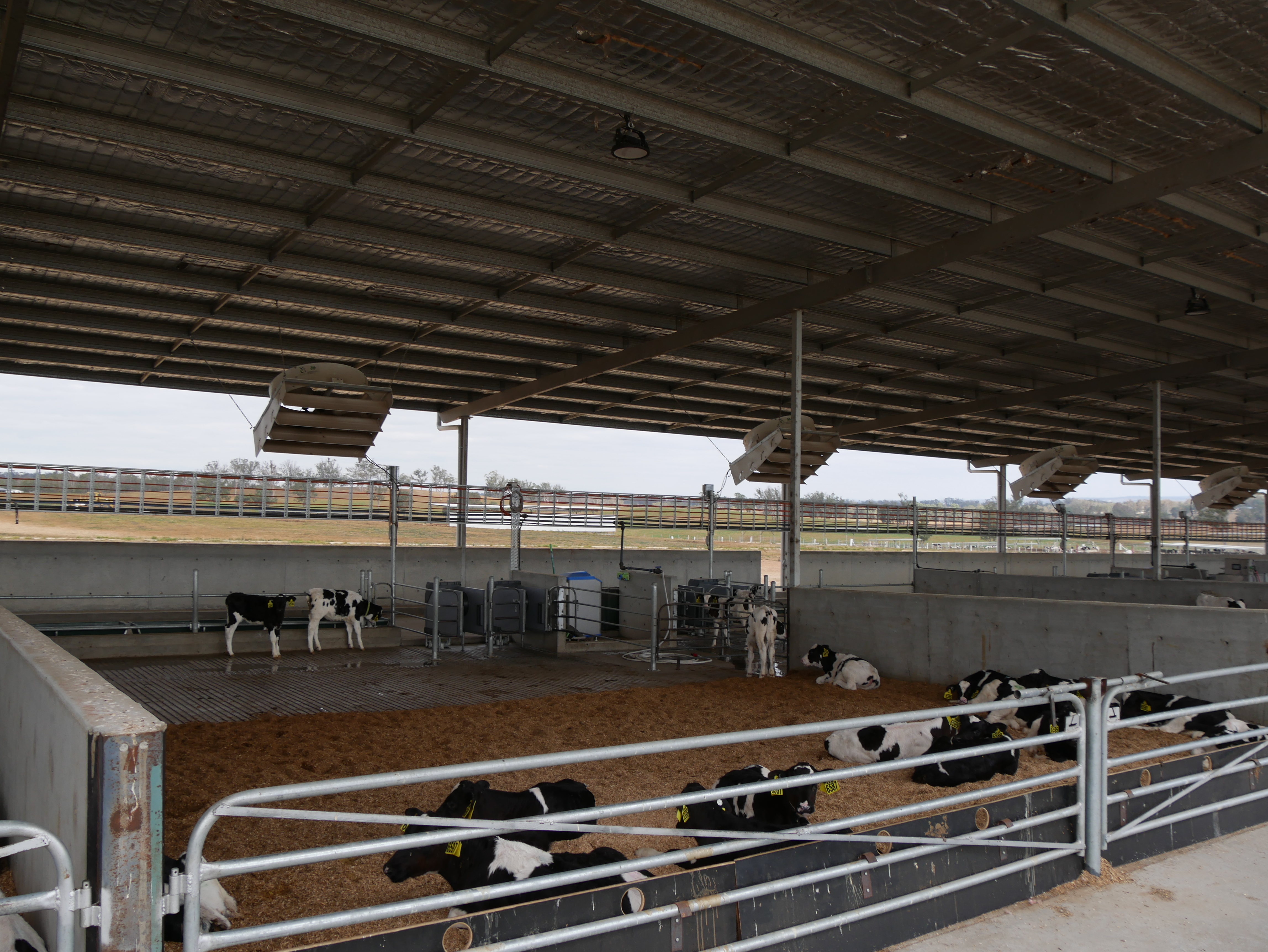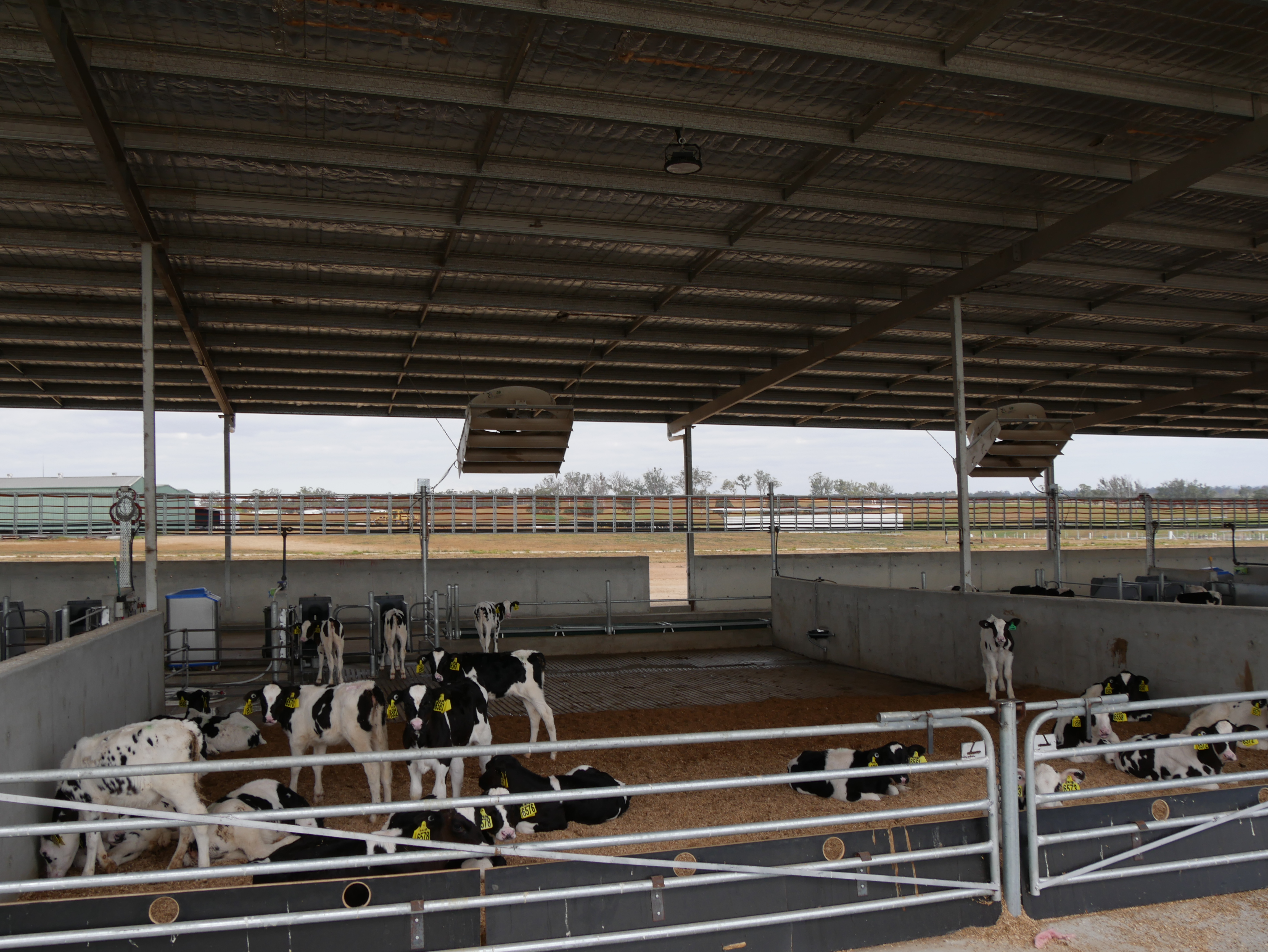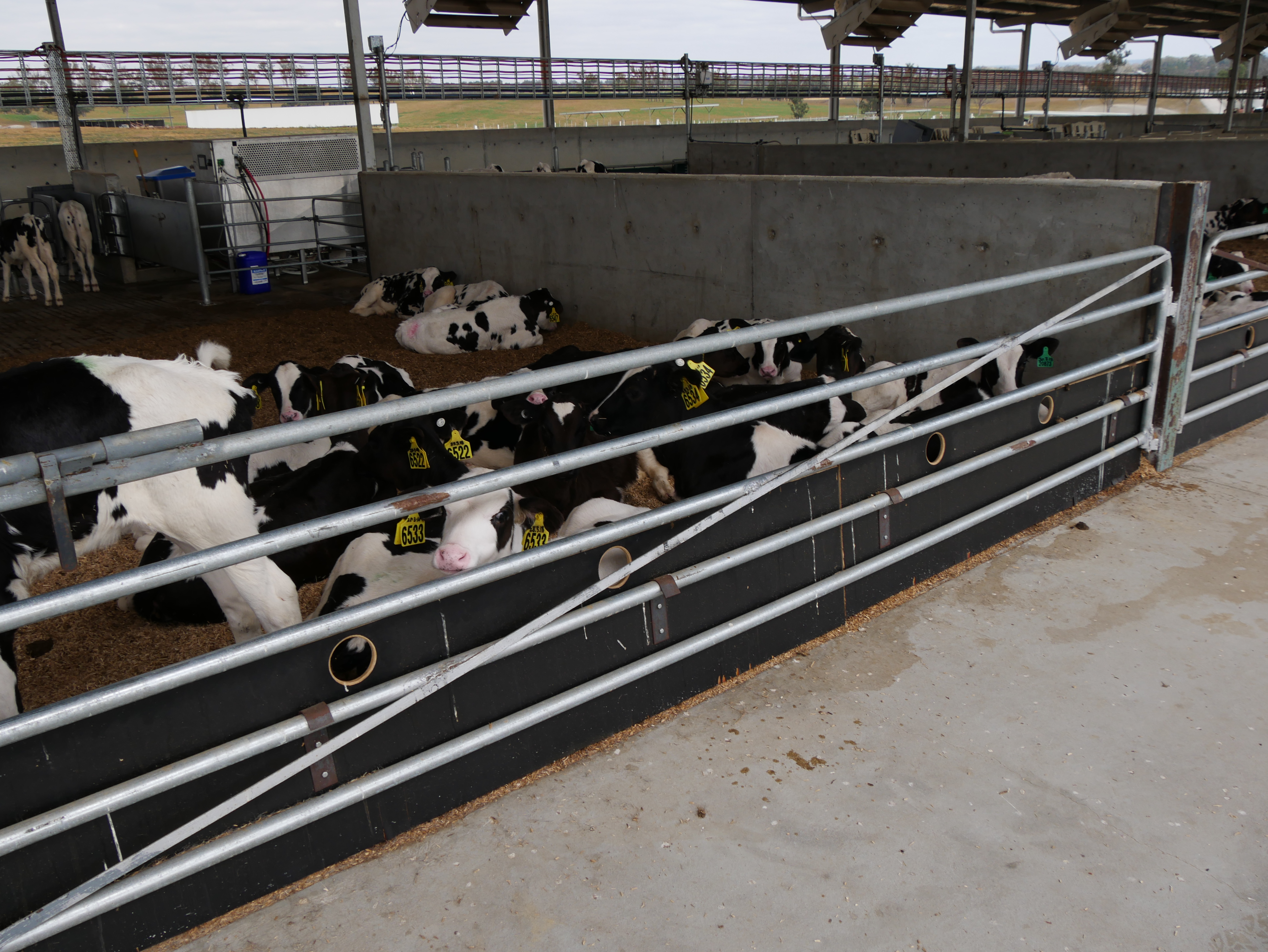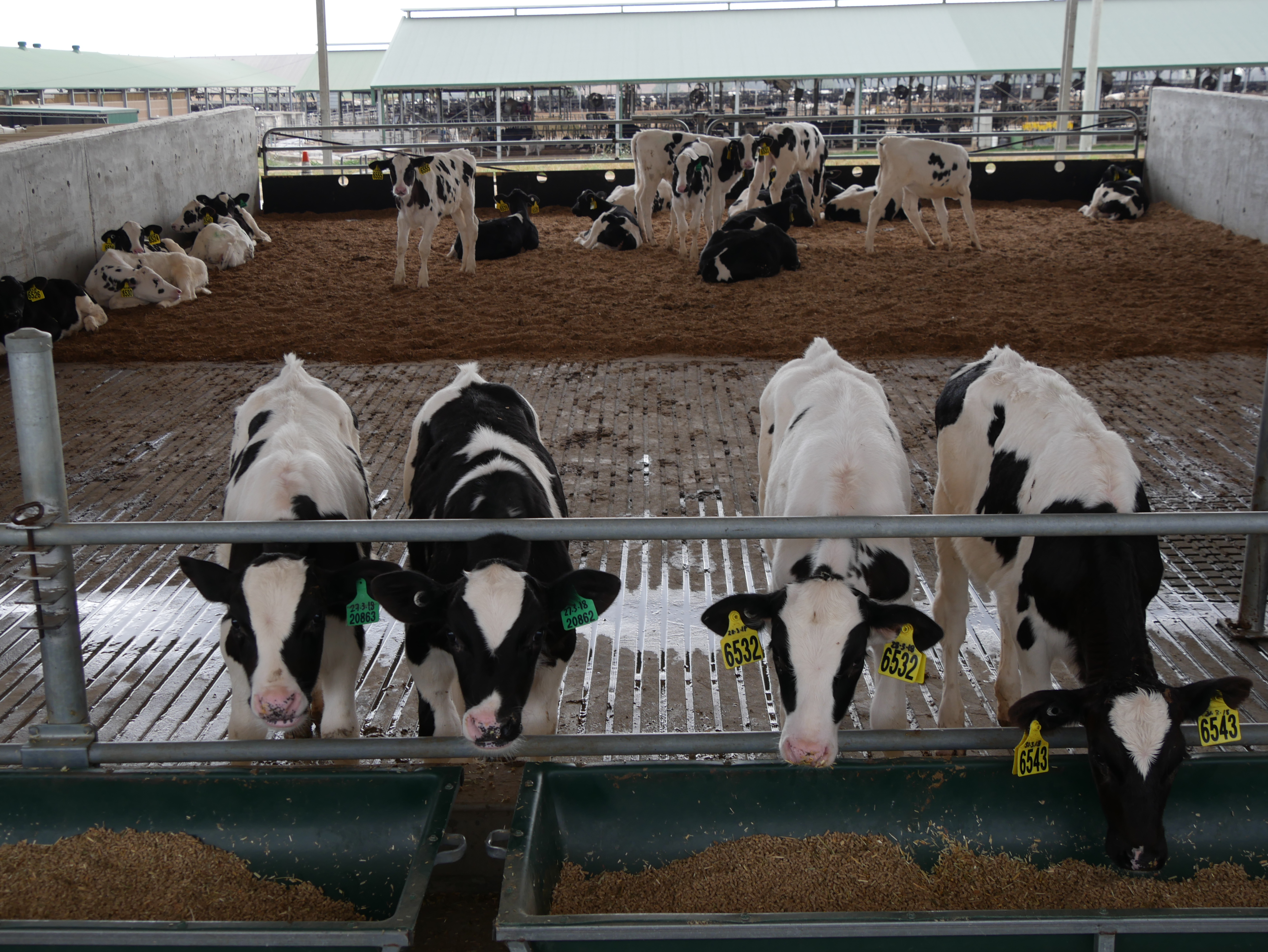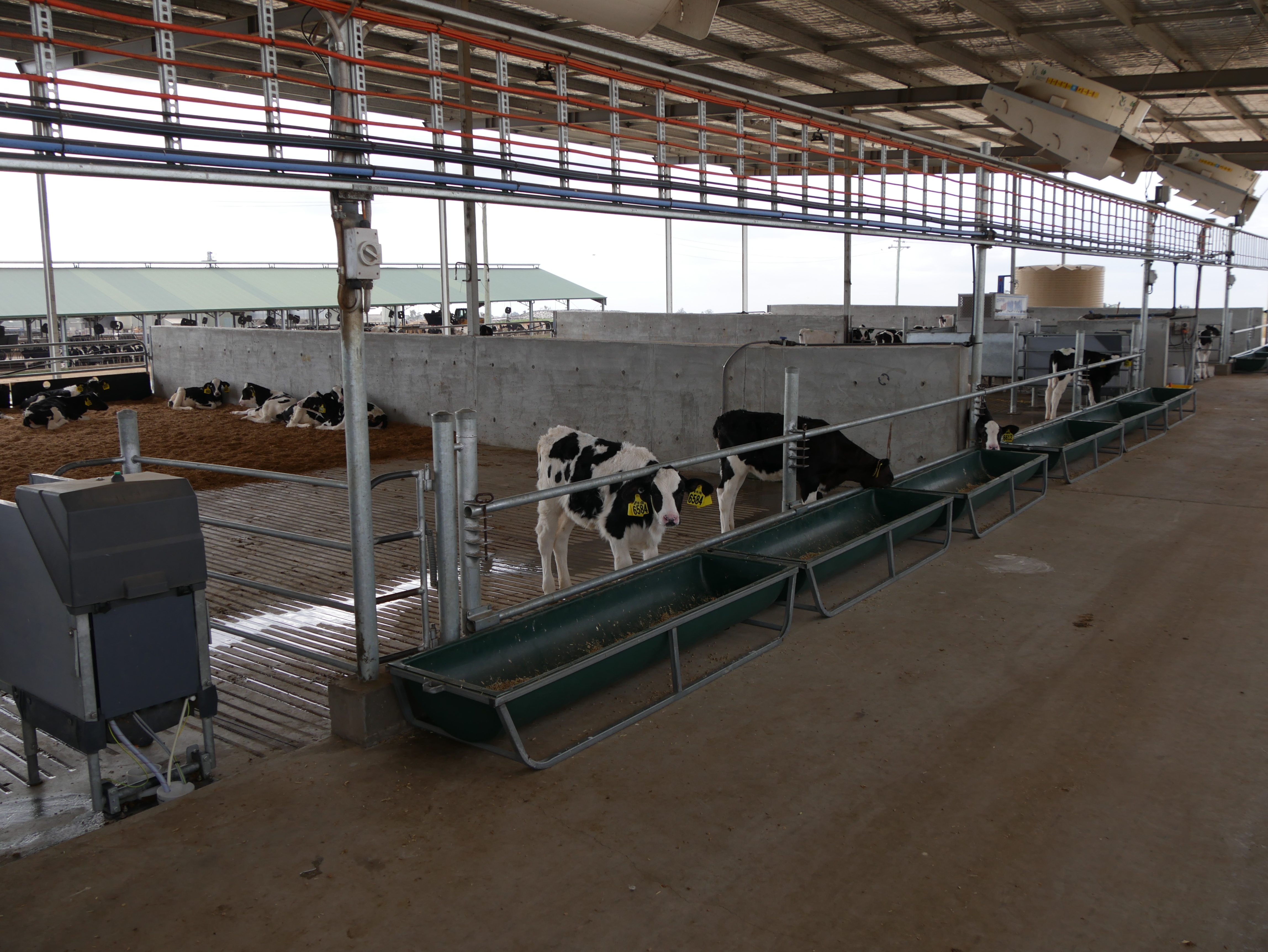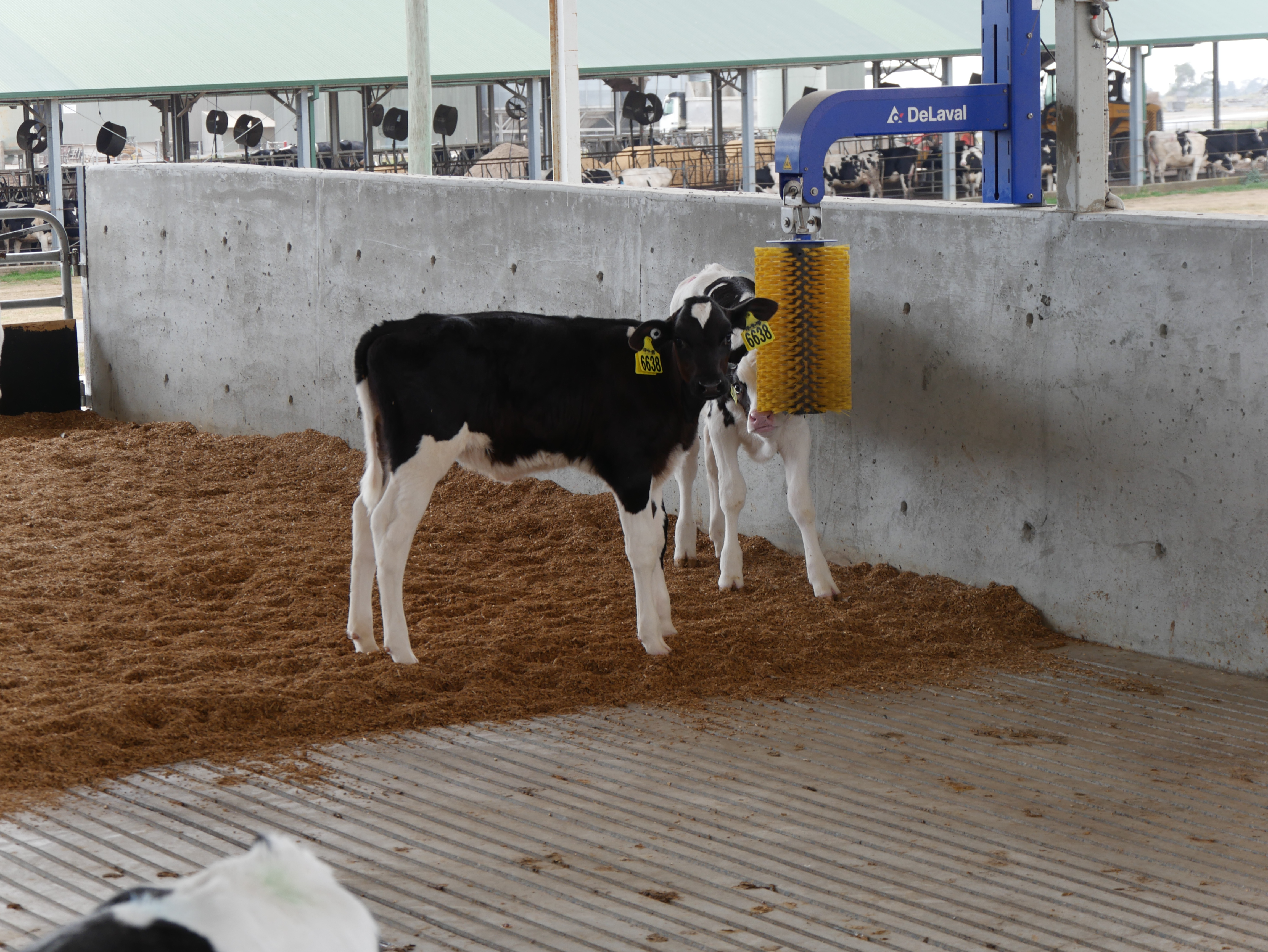At Leppington Pastoral Co we take great care and effort with the rearing of our young stock.
Once the calves are born they are identified with an electronic tag (NLIS tags) so we can trace their life history. This also includes details about her ancestry.
The calves are then fed colostrum which contains numerous antibodies from their mother. This helps protect the calf against various diseases that they may come into contact with.
Calves on our dairy farm are currently reared using two different processes. For the first 10 days calves are housed individually and fed 6 litres of milk through a bottle and teat. They receive 3L twice a day
We are now using a mix of milk powder and pasteurised milk to treat milk from the hospital cows to feed the calves. This uses the same technology that is used when milk is pasteurised for human consumption, This helps remove any harmful bacteria from the milk that might be a disadvantage to the calves.
Automatic Calf Feeder
Calves are now fed through a Holm & Laue automatic calf feeder. This system uses their electronic ear tags to identify them. The calves walk into a milk dispensing unit whereby a computer chip registers the NLIS tag to the calf’s number and a feed plan. The unit will dispense the appropriate amount of milk for that calf and recalculate their feed plan.
This technology allows a closer monitoring of the calves diet and well being. Sick calves can be monitored more efficiently and electrolytes or other medication given through the milk dispensing unit.
Calves have adapted well to this facility. This system allows calves to move freely within a large pen, and have the ability to receive milk 24 hours a day (depending on their dietary plan).
Calves are also supplied pellets and oat chaff. This is supplied to the calves from a day old, and this helps calves develop their rumen.
Once the calves are weaned off milk they have access to grazing land and are also fed a ration developed by a nutritionist. This helps them mature and grow under the best conditions.
The heifers are then bred via Artificial Insemination. These are bred using synchronization so they can be bred on the same day. We also utlise new technology, with sexed semen. This means that 90% of the calves born to this breeding, will be females.
Once the heifers have been declared pregnant they are then transport back to the Bringelly properties. Prior to calving the heifers are vaccinated and fed in our maternity area where they will be closely monitored prior to calving. Once calved the heifers will enter the milking facility.
As we keep all animals, including the bull calves for meat production, it is important that all animals are looked after well. This includes excellent nutrition, housing facilities and comfort for all calves. We have recently introduced a brush for the calves. This enable them to clean off any loose hair and also gives them time to play.
